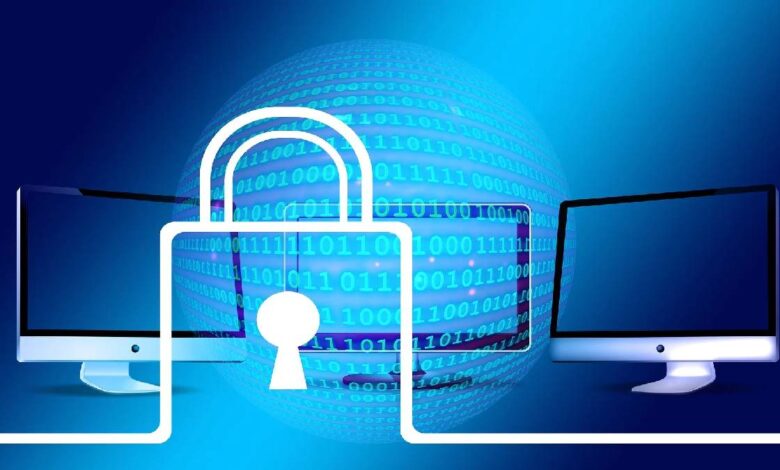Top 9 Reasons Why Cybersecurity Should be a Priority for Small Business Owners

In today’s digital age, cybersecurity has become more important than ever. Small business owners are often vulnerable to cyber attacks due to their lack of resources and expertise in this area. The consequences of a cyber attack can be devastating, ranging from financial losses to reputational damage. That’s why it’s crucial for small business owners to prioritize cyber security. In this article, we will highlight the top 10 reasons why cybersecurity should be a priority for small business owners. From protecting sensitive customer data to complying with regulations, we’ll cover all the key points you need to know. So, whether you’re a small business owner yourself or simply interested in staying informed about the latest cybersecurity trends, read on to discover why cybersecurity should be at the top of every small business owner’s priority list.
Cybersecurity threats facing small businesses
Small businesses are often targeted by hackers because they are perceived to be easier targets than larger organizations. And with the recent cybersecurity layoffs, more and more hackers are becoming emboldened to attack businesses. Cyber threats facing small businesses include phishing attacks, ransomware, and malware. Phishing attacks are the most common type of cyber attack and involve tricking employees into revealing sensitive information. Ransomware is a type of malware that encrypts a company’s files and demands a ransom payment to unlock them. Malware is a type of software designed to harm a computer system, network, or mobile device.
The consequences of a cybersecurity breach
The consequences of a cybersecurity breach can be severe and long-lasting. The most obvious consequence is financial loss, but there are also reputational and legal consequences to consider. A cyber attack can result in the loss of sensitive customer data, which can lead to a loss of trust and reputation damage. Additionally, small businesses may face legal action and fines if they are found to be non-compliant with regulations.
The financial impact of a cybersecurity breach
The financial impact of a cybersecurity breach can be significant for small businesses. According to a report by the National Cyber Security Alliance, 60% of small businesses go out of business within six months of a cyber attack. The cost of a cyber attack includes lost revenue, legal fees, and the cost of repairing or replacing damaged equipment. Small businesses may also need to invest in cybersecurity insurance to protect themselves from financial losses.
The cost of cybersecurity insurance
Cybersecurity insurance is a type of insurance that protects businesses from losses due to cyber attacks. The cost of cybersecurity insurance can vary depending on the coverage needed and the size of the business. However, the cost of cybersecurity insurance is often less than the cost of a cyber attack. Cybersecurity insurance can provide coverage for lost revenue, legal fees, and the cost of repairing or replacing damaged equipment.
The importance of employee training
Employee training is crucial for small businesses to prevent cyber attacks. Employees are often the weakest link in a company’s cybersecurity defenses. It’s important to train employees on how to identify and avoid phishing attacks, how to use strong passwords, and how to report suspicious activity. Regular training sessions can help employees stay up-to-date on the latest cybersecurity threats and best practices.
The Role of technology in Cybersecurity
Technology plays a crucial role in small business cybersecurity. Small businesses should invest in firewalls, antivirus software, and other cybersecurity tools to protect their networks and devices. It’s also important to keep software and firmware up-to-date to prevent vulnerabilities from being exploited. Small businesses can also use encryption technology to protect sensitive customer data.
Data privacy for small business websites
Data privacy is a vital concern that should not be overlooked. Protecting customers’ personal and financial information is not only a legal obligation but also an ethical responsibility. Cybercriminals may target small businesses due to perceived vulnerabilities, making data breaches a significant risk. An SSL certificate, or Secure Sockets Layer certificate, encrypts the communication between a website and its users, ensuring that the data transmitted remains confidential and protected from unauthorized access. This technology creates a secure connection, indicated by the padlock icon and “https://” in the website’s URL. Cheap SSL Certificates are a cost-effective way to secure your Data.
By implementing SSL certificates, organizations can inspire trust among their users, as it assures them that their personal and financial information is secure and cannot be intercepted by malicious actors. There are different types of SSL Certificates such as Single Domain SSL, Multi Domain SSL, and Cheap Wildcard SSL. SSL certificates are an essential tool in maintaining data privacy and security online.
Cybersecurity resources for small businesses
There are several cybersecurity resources available to small businesses. The National Cyber Security Alliance provides cybersecurity resources and tools to help small businesses protect themselves from cyber threats. The Federal Communications Commission also provides cybersecurity resources to small businesses. Additionally, small businesses can consult with cybersecurity experts to assess their security posture and identify vulnerabilities.
Conclusion
In conclusion, cybersecurity should be a top priority for small business owners. Cyber threats facing small businesses include phishing attacks, ransomware, and malware. The consequences of a cybersecurity breach can be severe and include financial loss, reputational damage, and legal consequences. Small businesses can protect themselves by investing in cybersecurity insurance, providing employee training, and implementing best practices. There are also several cybersecurity resources available to small businesses to help them improve their cybersecurity posture. By prioritizing cybersecurity, small business owners can protect their businesses and customers from cyber threats.